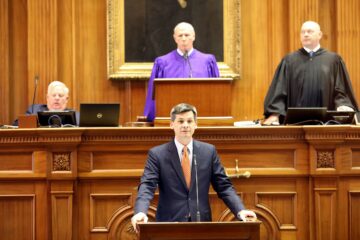Congress has decided to raise the debt ceiling by $480 billion after announcing that the government was expected to run out of money by Oct. 18.
According to The New York Times, both Democrat and Republican parties were able to come to a consensus to allow for a temporary debt ceiling increase. This will allow Congress to have more time to deliberate on what the next step should be.
What exactly would running out of money mean for the United States?
“I’d like to think that the government running out of money is not even a possibility,” sophomore business administration major Arman Alavi said.
The lack of background on what this means for Americans can be unnerving because citizens want to believe that their government has enough money to provide for its people.
“The government running out of money has never happened before and it would be unprecedented, as it would also signal that the United States is no longer a trustworthy and dependable borrower since there is a chance that creditors to the United States will not be paid back,” Assistant Professor of Economics Dr. Tarabar Danko said.
The debt limit is set by Congressional law. Congress had to decide whether to increase the national debt ceiling or to try and borrow more money from foreign creditors. Right now, the United States’ national debt is about $28.4 trillion.
“Congress has imposed an artificial ceiling on the amount of debt the United States can take on,” Assistant Professor of Economics Dr. Nicholas Moellman said. “In part, this is an attempt to curtail spending. However, it’s important to note that the limit is artificial and there is no external force disallowing Congress from borrowing more money.”
Had Congress not agreed to raise the debt limit for the government, the government would not have been able to pay its bills. This would lead to workers’ pay being halted, along with a pause in essential services.
“If the debt limit is not increased, that means Congress literally does not have dollars to spend on many things that we value,” Moellman said. “A number of things we do not even realize rely on federal funding will not be possible.”
As a result of citizens possibly not being paid for their work, as well as services such as the U.S. Postal Service being paused, citizens focused on how this could have potentially impacted their individual lives directly.
“If this happened it would damage the United States economic standing in the world and make it much harder for the federal government to borrow funds in the future,” Tarabar said. “In turn making it even more difficult for the government to provide for the public goods and services for people across the United States.




